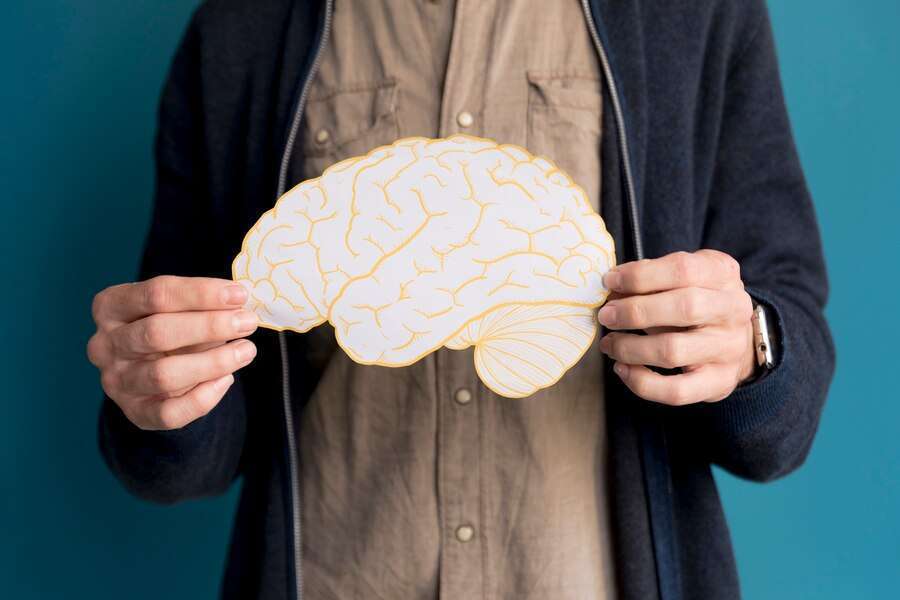Cerebellar Degeneration
Overview

What is Cerebellar Degeneration?
It is a Neurological condition, i.e. the deterioration of the nerve cells in the cerebellum, progressively weakening the cerebellum. The cerebellum is in the hind part of your brain, which controls various important functions. They include coordination in balance, standing, walking, speech, and muscular movements. One of the reasons for this condition can be genetic mutation.
Cerebellar degeneration affects the brain and leads to motor and non-motor symptoms. It can cause problems with walking, muscle movements, eyesight, and speech. This type of degeneration presents with decreased muscle tone and loss of coordination and balance in both the skeletal and smooth muscle tissue.
Symptoms
Symptoms of cerebellar degeneration are:
• An awkward gait, difficulty balancing, uncontrolled muscle movements, and difficulty in speech (dysarthria). Vertigo issues or dizziness - Balance being compromised.
• Hypotonia – i.e. decreased muscle tone
• Problems with the Eye, including double vision and involuntary eye movements.
• Ataxia - Poor muscle coordination in the arms or legs. Issues with motor skills, such as holding your head up or using the limbs.
• Tremors when performing muscle movements. Unsteady walk with a wide gait. Slow, unsteady, and jerky movement of the arms or legs.
Other symptoms include - Schizophrenia – which involves a disconnection from reality, including hallucinations, and Attention-deficit - hyperactivity disorder (ADHD) which is one of the most common childhood neurodevelopmental disorders
Causes & Risks
There are a variety of conditions that can cause cerebellar degeneration, including:
• Cerebellar degeneration can be caused by various factors such as genetic mutations.
• Alcohol use disorder can lead to a thiamine (vitamin B1) deficiency. This disrupts your brain function and damages cells. People with alcohol use disorder may not get enough thiamine in their diets.
• The disorder causes nerve degeneration in the spinal cord and brain, including. This includes ataxia, multiple system atrophy, and multiple sclerosis (MS).
• Neurodegenerative disorders may be inherited (passed through abnormal genes from parents to children). Or, you may develop the disease during your lifetime.
Paraneoplastic syndromes: Some people have an autoimmune disorder that causes their bodies to attack healthy brain cells in response to a tumor. Paraneoplastic syndromes are more common in people with certain cancers. These include breast cancer, ovarian cancer, uterine cancer, adult Hodgkin’s lymphoma, and small-cell lung cancer.
• Risk factors for cerebellar degeneration vary depending on its cause.
Alcohol or nutrition-related cerebellar degeneration usually happens around middle age. It’s common in people who have a history of alcohol use disorder.
• Cerebellar degeneration can occur in children who have certain inherited diseases.
Test & Diagnosis
• Early diagnosis can aid in managing symptoms effectively and optimising the overall well-being of those affected by cerebellar degeneration.
• Diagnosis of cerebellar degeneration involves a thorough medical history review, and physical examination focusing on neurological functions. Additional diagnostic tests such as brain imaging, and blood tests to rule out other conditions may also be conducted.
• The healthcare provider may suggest an imaging exam, to confirm the test. These exams create a detailed picture of the brain and the tissues around it.
• In case you have cerebellar degeneration, the imaging exam will show a smaller or deteriorated cerebellum. These tests can also detect other brain conditions, such as a brain tumor or evidence of stroke.
• The cerebrospinal fluid test, can tell if there is an autoimmune disorder.
Treatment
While there is currently no cure for cerebellar degeneration as such, due to its progressive nature, treatment options aim to manage symptoms and improve the quality of life
• Chemotherapy, Radiation therapy, and Immunotherapy.
• Immunosuppressant.
• Immunotherapy.
• Different combinations of chemotherapy, radiation therapy, and surgery to remove a tumor.
• Change in food habits. This can mean eating more whole grains, lean meat, and fish. You might also need foods fortified with B vitamins and Thiamine supplements.
• Individuals with cerebellar degeneration may need physical, occupational, or speech therapy. These therapies can help you improve: Motor skills to perform day-to-day activities, muscle strength and coordination, and swallowing, speaking, and language skills.
Living With
The outlook for cerebellar degeneration depends on - the underlying cause of the disorder. For other neurodegenerative conditions, the disease will likely worsen over time at various speeds.
Patients with increasing forms of cerebellar degeneration are likely to develop severe loss of coordination – and may need an assistive device to move around. They may also lose the ability to live independently if they can’t perform daily tasks or activities. Some patients even become bedridden.
Many affected individuals have normal life expectancy and learn to cope with their condition; some even enjoy relatively normal lives. Living with the degeneration may involve working with specialist physiotherapists, occupational therapists, and speech pathologists to minimise the impact.
Complications
• Cerebellar degeneration refers to the progressive loss of neurons in the cerebellum, a part of the brain that coordinates movement and balance. Complications of cerebellar degeneration include
• One of the primary complications is the gradual loss of coordination and balance, leading to unsteady walking, difficulty with precise movements, and tremors.
• Motor Impairments in some Individuals may experience stiffness of joints, and difficulties with fine motor skills, such as writing etc.
• Cerebellar degeneration can cause speech and swallowing Problems
• Vision Issues are common in individuals, such as involuntary eye movements or difficulty controlling eye movements.
• In some cases, cognitive impairment, including difficulties with memory





